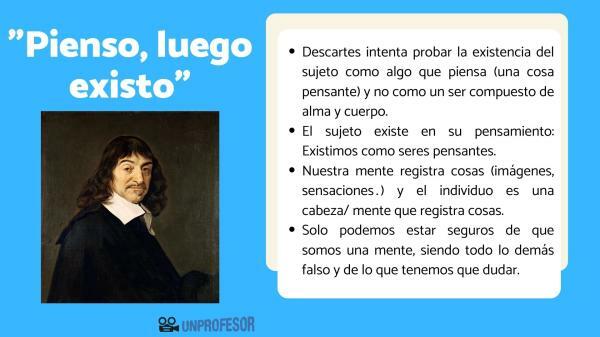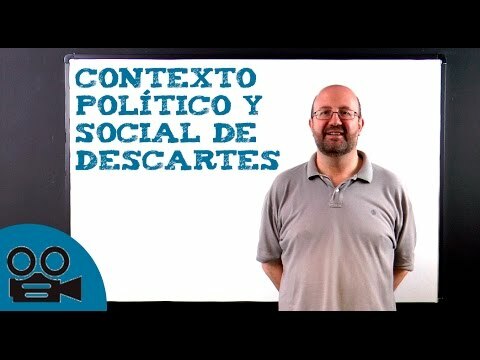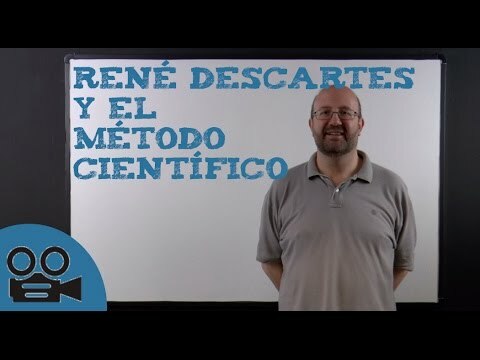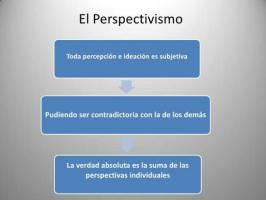I think therefore I am by Descartes

In today's class we are going to study and analyze the phrase I think, therefore I am of Descartes (Cogito ergo sum). This is one of the best-known phrases in the history of philosophy, written by Rene Descartes (1596-1650) in his work method discourse (1636) and with which the beginning of the rationalism. A philosophical position that defends that reason is independent of experience and the existence of innate ideas, which constitute the origin of knowledge.
Do you want to know more about the phrase I think therefore I am of Descartes? In this lesson from a PROFESSOR, we tell you everything. Class begins!
to understand the phrase I think therefore I am of Descartes first it is necessary that you know what is the thought and the context in which Rene Descartes He lived.
Descartes is an author of S.XVII, that is to say, a time in which the scientific revolution and in which Copernicus doubts the Aristotelian thought, considering that geocentrism should no longer be the fundamental element that describes our universe, proposing as an alternative heliocentrism.
In this way, in this context Descartes stands as one of the fundamental and most important authors. And it is that, our protagonist has as objective of philosophical thought the legitimize the new science: Proposing an adequate scientific method, certifying which are the fundamental elements of the new science (creating mathematical models that are capable of explaining what we have observed and empirical observation) and developing a new way of thinking based on reason.
Under these postulates, Descartes developed all his mathematical and philosophical work. Highlighting the publication of lthe following books:
- Rules for the direction of the mind, 1628.
- Treaty of the world, 1634.
- Discourse on Method, 1636.
- Metaphysical Meditations, 1641.
- The Passions of the Soul, 1649.
In all these works, our protagonist establishes a method to reach a truth that removes the doubtto, that is to say, that Descartes starts from doubt as a method to question knowledge and analyze the reasons that lead to doubt. creation of an idea that is given as valid, the only true being that which does not present any doubt about its evidence/the thought.
Likewise, he argues that the existence of the idea is innate, that ideas do not reside in a supersensible world, external and independent, but are found in our own mind and that at all times depend on the subjectivity of the individual who perceives them.

This phrase of Descartes has become one of the best known and famous of the history of philosophy. Which summarizes one of the most important arguments and stands as the starting point of a scientific method to legitimize the fundamental elements of the science that was emerging in the 17th century.
Thus, at this point, we must ask ourselves What did Descartes mean by that phrase? Well, at UnTEACHER, we help you understand it 100%. Thus, to begin with, we must point out that this sentence is not entirely the one Descartes wrote, since what he writes exactly in the Discourse on Method is: "I think, I am."
With "I think, I am", Descartes tries to prove the existence of the subject as something that thinks (a thinking thing) and not as a being composed of soul and body, that is, the subject exists in his thought: We exist as thinking beings. Therefore, what our protagonist is telling us is that our mind registers things (images, sensations...) and that the individual is a head/mind that records things. We can only be sure that we are one mind, everything else being false and what we have to doubt.
Likewise, from this phrase the following hypothesis posed by Descartes is also extracted: There could be a superior being (evil genius) to all of us who sends images to our minds (which we record in it) of a reality that we believe is happening and is real, but that It really is not and it does not exist because it is a hoax of the evil genius.
"...But do I know if there will be something different and of which there can be no doubt? Is there not some god or other power that puts these thoughts in my spirit..."
For you to better understand this hypothesis, we explain it to you through the plot of the film matrix: In the Matrix we have a computer (a superior entity) that sends images to human beings of an alternative reality that is not the true one, but that the individual believes to be the real one. However, characters like Morpheus or Neo know that this is not reality, that they are being sent misleading images and, therefore, they doubt and question that created reality.
"...So, after having thought about it and having carefully examined all things, one must conclude, and consider sure, that this proposition: I think, I exist, is necessarily true, every time I pronounce it or conceive it in my spirit…”

For Descartes the first evident truth will be the cogito ergo sum to which he arrives by applying his scientific method. which, part of the methodical/cartesian doubt(do not get carried away by intuition or the senses) to find the absolute certainty (the truth / reality):
“…Not admitting anything as true, carefully avoiding haste and prevention, and not understanding in my judgments nothing more than what appears so clearly and distinctly in my opinion that there is no occasion to put it into question. doubt…"
In this way, Descartes proposes four principles or rules in the scientific method:
- Evidence: “…Do not admit something as true if you do not know with evidence that it is, that is, carefully avoid precipitation..."
- Analysis: “… Divide each of the difficulties that I will examine into as many parts as possible and as many as would require their best solution..."
- Synthesis: “… Guide my thoughts in an orderly fashion, beginning with the simplest and easiest to know objects, gradually ascending to the knowledge of the most complex ones..."
- Enumeration: “… To make such comprehensive counts and such general reviews of everything, that you would be sure not to omit anything…”




